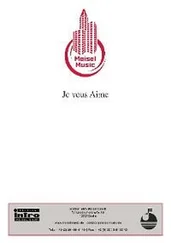Darla isn’t coming, even though it was she who bought the cut of meat, not me, and it was she who made sure it was a good one. She’s never once asked to come with me on these trips. She’s said instead, “I’ll go if you want me to,” and I love her, I love her, I love her for caring so much and doing me the kindness of pretending not to.
In the car, at the first stoplight, I take out my phone and peck out an apology that spills over into four texts, explaining why I am running late.
The reply buzzes back immediately.
A single, stoic K .
Fifteen minutes later, I’m parked at the base of the stairs to Callie’s apartment. I text her again, press send, but she does not reply. I just hear her front door slam, a few flights above me, and then I see her slowly make her way down the stone staircase.
Callie lives on the other side of the city from me, just outside of Boston, in one of those Somerville apartments built into the side of a hill. Her building is at the very top of a steep rise, with a narrow concrete staircase set deep into the earth, clambering up to the front door. Callie lives at the very top of the building, up in the clouds, far removed. She’s never invited me and Darla to her house. She’s never invited our parents, either. She doesn’t talk to any of us of friends or lovers, but it is a safe bet that she does not have any of either. As far as any of us know, in all the years she’s lived there, Callie has never had a houseguest.
She walks down the stairs sideways, rolling each hip forward and carefully making sure each foot falls fully on the step below it. As we’ve grown up, she’s only added to the weight she put on at the Toneybee, and so she is extra careful on the steep stairs. She has two shopping bags slung in the crooks of her arms. She keeps a third plastic bag close to her chest. She is wearing a purple felt overcoat and black baggy pants and a shiftless black wool sweater. Callie only wears black now. Her hair is threaded into a million microbraids that wisp around her full, pretty face and end abruptly in a severe bob, down around her chin.
When she’s finished her slow progress down the stairs, she unceremoniously dumps all of these bags into the backseat of my car before throwing herself in the front.
While she settles in beside me, I scan her for evidence of her secret life. There is a flurry of animal hairs, fine and white and bright on the black of her sweater. I see that she has on one black sock and one pink.
Your socks don’t match . I make a point of signing to her when we are together. I am hoping that if I say it with my hands, it will seem more like a gentle ribbing, not an accusation.
But it doesn’t work that way. Callie waits, allows herself a bristle. Then she says very distinctly, making her voice full and round, “I didn’t get to laundry this week.”
She has never gotten to laundry in all the weeks she’s lived alone. She hasn’t signed to me since we left the Toneybee over twenty years ago.
I start the car, make it out of the city, and pull on to the turnpike. Callie turns on the radio, loud, as soon as she can. She picks the most obnoxious channel possible: a news station, with periodic updates of traffic, the advertisements too loud. “W-I-N-S, the Winds of New England,” says the announcer with a heavy Boston accent.
I take my hand off the steering wheel. Do we have to listen to this?
“Yes,” Callie says, simply, but she’s smiling. This is rare. I always offend her. But she has decided not to be right now, which is a blessing, so I take it.
“Dad’s good,” I say, giving up on signing. Callie only nods.
Unlike Callie, I see our father every Sunday. When we left the Toneybee, we moved in with him and Uncle Lyle and Aunt Ginny in their house on Chalk Street. A humiliating time for Callie, a terrible, sad time for me, one we both prefer to forget about. When my sister and I left for college, he could finally afford to move out of Lyle’s house. Now, so many years later, he lives with his new wife, Gloria, a woman who looks eerily like our mother. She even sports a version of our mother’s old Jheri curl. But Gloria is nothing like our mother when you speak to her. She is adamantly passionless. She has no strong likes or dislikes, she does not abhor. If she has views on anything, she is very careful not to mention them in front of me or Callie or Darla. The rare times when all of us eat out together, and she catches me signing to Callie in passing, Gloria lowers her eyes and blushes.
I don’t talk about the Toneybee with our father. Any mention of it still makes him cry: it doesn’t matter when or where. I can say something about the trees around Courtland County High and his eyes cloud over.
Callie would like to believe she is the only one who still lives at the Toneybee in her heart, who goes through the experiment every day in her mind, but she is not. Still, she won’t give our father the satisfaction of sharing this grief.
He does not try to work past her reserve. He believes it is a just punishment, one that it is right he should endure. He accepts it meekly, but that does not mean he doesn’t rage in his heart about it. Or rather, in his heart and to me.
“How’s work?” I say, and watch Callie’s shoulders rise up, realizing instantly, that I have made a grave mistake.
“Work,” she says distinctly, “does not exist.”
I was not expecting this answer. As far as I knew, up until this moment, Callie was a massage therapist and actually quite good at it. She goes to the houses of the rich and touches the smalls of their backs with the palms of her hands. She has done this since she dropped out of college. Callie did not much care for college: she fell in with a Bible study group for a while, then a vegan collective, and finally a bunch of unaffiliated house shares on the outskirts of the city’s Blue line.
I should ask her why work does not exist, but she’s trained all of us not to ask any questions about her personal life. Even the names and numbers of her cats are off limits. And she has told me, long ago, that she does not like it when I “brag about my life,” as she puts it, so any conversation about myself is off limits as well.
I have nothing to brag about. My life is as odd and small and secretive as Callie’s. I, too, live in a very small room at the top of a very tall house, all of it outside of my price range. I am a lab technician at an eye doctor’s in downtown Boston. The difference between Callie and me is that I have Darla. Darla, who is not black but Indian; not from New England, but California; cannot sign and has never expressed the desire to learn. We met in college, and her complete otherness from me, what made me fall in love with her, has dulled, turned warm, and now I love her for what we share. She is not an animal lover, thank God. Still, it took her a while to realize I was not joking when I told her I do not want to have children because they only end up doing awful things.
When I first meant Darla, when we were young, I thought nobody would ever remember the Toneybee. Darla had never heard of it, and when I told her about it, all of it, she was more sickened by the story than fascinated. Besides her, I only told it to a few of our friends and, then, in strictest confidence.
And then came the Internet and we are known again, or believed to be known.
Last year, 2010 was the twenty-year anniversary of the start of our experiment. The fan notes came then, sent to my work address; Boston magazine did a brief write-up, a few other places published that picture. A few months after the write-ups, I received an e-mail with two attachments, scans of documents on Toneybee letterhead. The e-mail itself read, “I have often thought of you.” It read, “Inside these files, a kind of amends.” It was signed “Max.”
Читать дальше
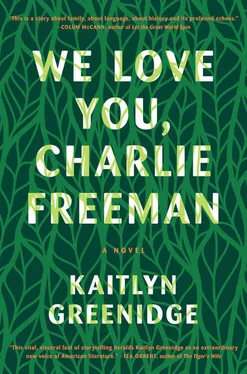





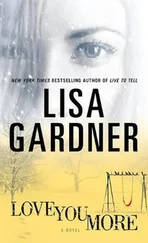
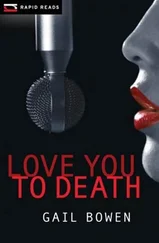
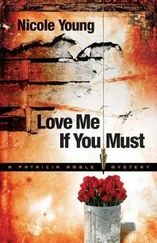

![Ally Carter - [Gallagher Girls 01] I'd Tell You I Love You But Then I'd Have to Kill You](/books/262179/ally-carter-gallagher-girls-01-i-d-tell-you-i-lo-thumb.webp)

